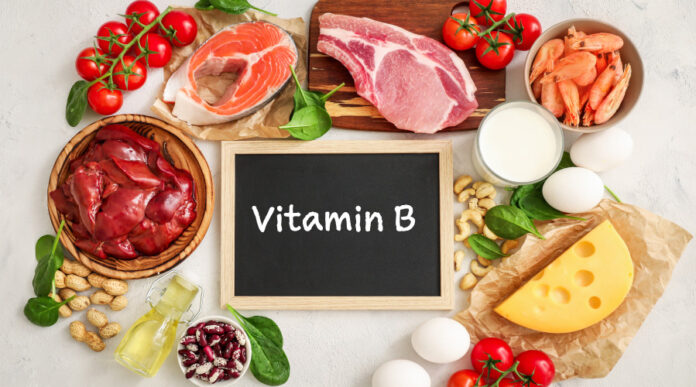Vitamin B refers to a group of water-soluble vitamins that play essential roles in various bodily functions, including energy production, brain function, metabolism, and red blood cell production. Here are some good sources of different B vitamins:
- Vitamin B1 (Thiamine):
- Whole grains (such as brown rice, whole wheat, and oats)
- Legumes (such as lentils, beans, and peas)
- Nuts and seeds (such as sunflower seeds and flaxseeds)
- Pork and pork products
- Yeast extracts
- Vitamin B2 (Riboflavin):
- Dairy products (such as milk, yogurt, and cheese)
- Eggs
- Lean meats (such as chicken and turkey)
- Leafy green vegetables (such as spinach and broccoli)
- Almonds and other nuts
- Vitamin B3 (Niacin):
- Poultry (such as chicken and turkey)
- Fish (such as salmon and tuna)
- Legumes (such as lentils and peanuts)
- Whole grains (such as barley and quinoa)
- Mushrooms
- Vitamin B5 (Pantothenic Acid):
- Organ meats (such as liver and kidney)
- Avocado
- Whole grains (such as brown rice and whole wheat)
- Broccoli
- Mushrooms
- Vitamin B6 (Pyridoxine):
- Fish (such as salmon and tuna)
- Poultry (such as chicken and turkey)
- Potatoes
- Bananas
- Legumes (such as chickpeas and lentils)
- Vitamin B7 (Biotin):
- Eggs
- Nuts (such as almonds and peanuts)
- Legumes (such as lentils and soybeans)
- Sweet potatoes
- Whole grains
- Vitamin B9 (Folate or Folic Acid):
- Leafy green vegetables (such as spinach and kale)
- Legumes (such as lentils and chickpeas)
- Citrus fruits (such as oranges and grapefruits)
- Fortified grains and cereals
- Asparagus
- Vitamin B12 (Cobalamin):
- Animal products (such as meat, fish, and poultry)
- Dairy products (such as milk and cheese)
- Eggs
- Fortified plant-based milk alternatives
- Some fortified breakfast cereals
Remember that individual vitamin B requirements and dietary needs may vary, so it’s always a good idea to consult a healthcare professional or a registered dietitian for personalized advice.



